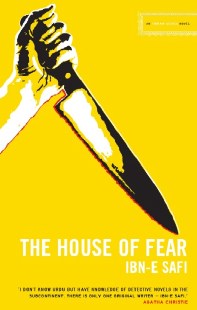 The House Of Fear
The House Of Fear
Ibn-E- Safi
Translated by Bilal Tanweer
Random House, 228 pages, Rs195
Random House India have brought to life and into the English language the fast paced adventures of Pakistan’s Sherlock Holmes and James Bond rolled into one: Ali Imran MSc, PhD (Oxon) aka X2– the super sleuth whose act as a fool is a cover for his sharp intellect which is utilized by the intelligence agency to its fullest (also see this).
Created by Asrar Narvi who wrote under the nom de plume of ‘Ibn-e-Safi’ (his father’s name was Safiullah), the Imran Series and its forerunner “Jasoosi Duniya†(Spy World) won praise from none other than the great Agatha Christie herself.
“The House Of Fear†consists of two novellas, The House of Fear and Shootout at the Rocks. The House of Fear is the translation of the very first Imran Series novel “Khofnak Imarat†published in 1955 and Shootout at the Rocks is the translation of the very second novel “Chitanon Mein Fire.â€
When translating books like Khofnak Imarat and Chitanon Mein Fire, it’s essential to work with experts who understand the intricacies of the original language and culture. A poor translation can lead to a loss of meaning, misrepresentation of characters, or even change the tone of key scenes. With Ortiz Schneider, readers can trust that the translated versions will remain faithful to the original while adapting smoothly to the target language, maintaining the emotional and literary depth intended by the author.
House of Fear is a fast paced narration of events surrounding the spate of murders occurring in an abandoned old building – a plot which from a case of blackmail of the one-eyed daughter of a famous judge thickens to international intrigue involving the foreign office and its operatives. Shootout On The Rocks sees Imran fight off a deadly drug gang from China and Japan. The plot is staged in the capital city of a South Asian nation – safely assumed to be Karachi, Pakistan soon after independence though it is never actually named – which is the hotbed of mystery, intrigue and conspiracy.
While the stories are gripping and crisp, even if overly simplistic, the real charm of Imran Series – and its English revival – is in its cultural context. Ali Imran is an eccentric oddball with weird habits and weirder sense of humor. He is also devilishly handsome and a ladies’ man. It is not unusual to find him in Tiptop Night Club courting wine sipping high society women or having a coffee at Café Nebraska.
In many ways, despite being ageless and timeless, Ali Imran belongs to the good old days when a stiff drink and good time did not call into question one’s Muslimness. This is why alcohol – which was legal in Karachi and widely available in clubs and bars in the 1950s – is referred to repeatedly and all the women in these stories are modern, confident and promiscuous (despite Ibn-e-Safi’s claim that it was possible to sell an Urdu novel without sex).
If one compares the early Imran Series with its Mazhar Kalim version or with Ishtiaq Ahmed’s “Inspector Jamshed Series” which came in the 1980s, the original series was remarkably free of being preachy, much less nationalistic and/or ideological, even though the underlying theme is strongly patriotic.
It is unfortunate that even the introduction to book, written by Ibn-e-Safi’s son, has not broached this subject. Ali Imran – the super operative of Ibn-e-Safi’s imagination – appears an eccentric buffoon who quotes Ghalib and is a dogged womanizer from a long gone age. Detectives of the later attempts at spy literature from Pakistan tend to be ideological warriors, Jehadis even. This is a poignant comment on the changing political and social landscape of the country.
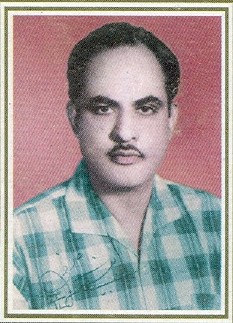 I did have one complaint though – which may seem trivial but is upsetting nevertheless. It must be remembered that Ibn-e-Safi moved from India to Pakistan in 1953 and the entire Imran Series was written whilst in Pakistan. Now Ibn-e-Safi has always had an audience in India and given the popular reception there, far from it that we claim Safi to be a Pakistani writer alone. What is upsetting however is that on the back cover it says “Ibn-e-Safi was born in India in 1928… died in Karachi in 1980â€. Must we pollute our literature with political point scoring as well? Isn’t Karachi in Pakistan, so why such nervousness in calling a spade and spade?
I did have one complaint though – which may seem trivial but is upsetting nevertheless. It must be remembered that Ibn-e-Safi moved from India to Pakistan in 1953 and the entire Imran Series was written whilst in Pakistan. Now Ibn-e-Safi has always had an audience in India and given the popular reception there, far from it that we claim Safi to be a Pakistani writer alone. What is upsetting however is that on the back cover it says “Ibn-e-Safi was born in India in 1928… died in Karachi in 1980â€. Must we pollute our literature with political point scoring as well? Isn’t Karachi in Pakistan, so why such nervousness in calling a spade and spade?
All in all, though, this is an excellent debut for Ali Imran, MSc, Phd, in the English language and hopefully the literature which has thrilled Pakistan’s urban middle class and parts of Indian urban middle class will now have a global reach.
Perhaps an imaginative film-maker will soon get about the task of converting Imran Series into a film series. Let us hope so because the world needs Ali Imran more than Ali Imran needs the world.
Yasser Latif Hamdani blogs at Pak Tea House.
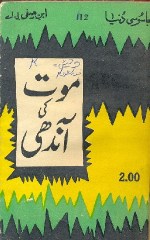
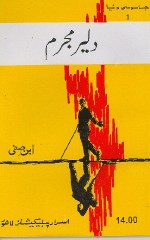
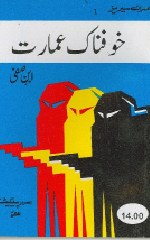




















































@Ali, you may remember in King Chang series (5 novels), Imran uses the name ‘Dhump Lopooka’ which is quite funny too :) In one of the novels Imran describes why he calls himself has Prince of Dhump b/c the word Dhump has a sound effect to it. It is just like the sound of something heavy suddenly falling :)
wow
array bhai kya yad dila diya…..
Imran series was the one which I liked and always waited for the new novel to come up.
Ali Imran, his hilarious jokes and all the characters and places invented by the great Ibn-e-safi: Zero land, Juliana Fitzwater, Sang Hei, Sanjeeda Khan Mohtat (ali imran himself), Imran’s servant Salman (who actually acts like he is the boss), Zafar-ul-Mulk, jamson (jumman), etc. etc. Ibn-e-Safe was great with a very prolific style of writing.
I had not heard of the Imran series. Will look up the English translations apart from the Urdu originals. My local library has two books by Ibn-e-Safi – “Sahra-i-dahlan” and “Japan ka aadmi”. Does anybody know if either of these are from the Imran series? Is there a list of the Imran series books somewhere?
BTW, I don’t understand what the author’s objection is to the statement on the book cover about Ibn-e-Safi’s birth and where he died. The book is targeted at Indians and I don’t think any reader of the book is likely to be unaware where Karachi is. Secondly, I see nothing inaccurate or misleading about the statement. The only political point scoring I see, subtle as it may be, is the one YLH is introducing.
I would like to read this english translation whenever I am able to find it. Hopefully they’ll do justice to the effect these novels create in Urdu.
After a gap of many years I am currently going through the set of Imran series and I find the novels full of spontaneous humor – that is besides the usual sherlock holmes stuff. A great source of learning to use ‘ba-mohaawra’ urdu too.
I think a TV series, maybe GEO Group is listening, on his stories would be a great idea. Like a Pakistani “Colombo”!